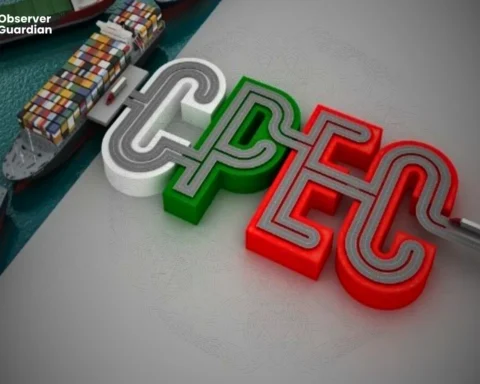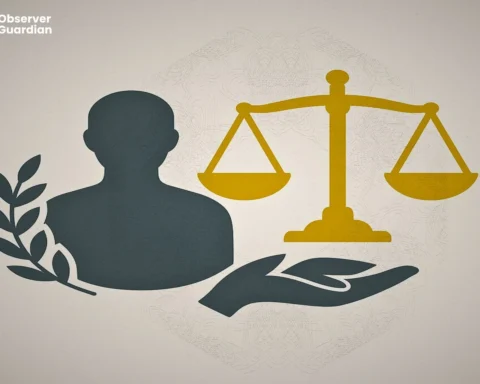The recent revelations about Tehreek-e-Labbaik Pakistan (TLP) having nearly a hundred bank accounts, with transactions totaling around 150 million rupees in a year, have peeled away the mask the party has long worn. For years, TLP positioned itself as the defender of religious morality, the guardian of Islamic law, and the loudest opponent of interest-based banking. Its leaders railed against the financial system, condemning it as un-Islamic and exploitative. Yet the same organization was quietly earning profits from bank accounts, the very institutions they denounce as sinful.
It’s hard to overstate the hypocrisy here. When a group builds its entire identity around religious virtue and the rejection of worldly corruption, even a small act of double-dealing hits differently. But this isn’t small. Managing nearly a hundred accounts isn’t a clerical oversight or a rogue member’s error. It reflects a deliberate, organized use of the system they publicly condemn. Their supporters, many of them ordinary people struggling with rising costs and hoping for spiritual clarity, deserve an honest reckoning.
TLP’s rise was always about exploiting emotion. The party gained traction by presenting itself as the moral conscience of Pakistan, a voice against blasphemy, immorality, and economic oppression. Its leaders wielded religion like a weapon, using street power and outrage to pressure governments and win influence. Their message resonated with people disillusioned by corrupt politicians and a failing economy.
But this scandal exposes that beneath the religious rhetoric lies the same hunger for money and power that defines the very politics they claim to despise.
When you think about it, this isn’t just about a few bank accounts. It’s about the manipulation of faith for personal and political gain. Religion, for millions, is sacred, a moral compass that offers hope and meaning. When groups like TLP twist it into a political brand, it becomes a tool for control. The problem isn’t religion; it’s the people who hide behind it, preaching piety while pocketing profits.
It also raises a larger question about accountability in religious politics. In Pakistan, religious parties often operate in a moral gray zone, demanding adherence to divine law while being exempt from the earthly laws that apply to everyone else. Their moral authority comes not from integrity but from fear fear of being labelled irreligious if you question them. For too long, society has given such groups a free pass. They’ve used street agitation and emotional blackmail to silence dissent. Now, faced with financial scrutiny, their sanctimonious image is cracking.
There’s a certain irony in the way TLP’s downfall mirrors that of secular politicians they love to condemn. The same patterns appear: secret transactions, financial mismanagement, and public deception. The only difference is that when TLP does it, they cloak it in divine justification. And that makes it worse. Hypocrisy under the banner of faith doesn’t just betray voters; it distorts religion itself.
The truth is that this revelation should be a wake-up call for anyone who still believes that moral virtue automatically comes with religious slogans. Faith is deeply personal. When political movements monopolize it, they corrupt its essence. The danger isn’t that people will stop believing in religion; it’s that they’ll start confusing hypocrisy with holiness. Every sermon about “purity” and “Shariah” rings hollow when the preacher’s pockets are full of bank interest.
The social cost of this double standard is enormous. When people see religious leaders exposed for the same greed they denounce, it breeds cynicism. It pushes the public toward disbelief, not in God, but in those who claim to represent Him. It erodes trust in all forms of leadership, making citizens less likely to believe in genuine reform or moral progress. And that disillusionment, in turn, deepens the country’s moral crisis.
There’s also an important lesson here for ordinary Pakistanis. We tend to romanticize religious movements because they speak the language of faith and simplicity. We assume that someone who dresses modestly or quotes scripture must be pure of intention. But appearances can be deceptive. The real measure of a person, or a movement, is not in how loudly they preach righteousness, but in how quietly they practice it.
It’s not just about TLP either. Many political and religious leaders across the region thrive on selective morality. They rail against corruption while cutting backroom deals. They condemn modernity while using every modern convenience. They talk of sacrifice but live in comfort. What TLP represents is a broader culture of hypocrisy that hides under religious legitimacy.
The exposure of TLP’s financial dealings won’t end their influence overnight. Their base of supporters still sees them as defenders of faith, and emotional loyalty is hard to break. But facts have power. And if enough people are willing to confront these contradictions, perhaps it will begin to erode the blind faith that allows such groups to thrive.
This scandal is about more than money. It’s about honesty, consistency, and integrity, the qualities that form the foundation of real faith. Islam, at its core, condemns hypocrisy far more harshly than it condemns worldly sin. The Qur’an itself warns against those “who say what they do not do.” If TLP had truly followed the religion it claims to champion, this scandal would never have existed.
So, where does this leave us? It leaves us with a choice. Either we continue to let religion be manipulated by those who use it for profit, or we reclaim it as a personal, moral force free from political exploitation. If this episode teaches anything, it’s that moral authority cannot be borrowed from scripture; it must be earned through action. And those who speak in God’s name while serving their own interests deserve not reverence, but rejection.
The hypocrisy of Tehreek-e-Labbaik Pakistan is not just their shame; it’s a reflection of how easily society can be swayed by slogans and appearances. The next time a leader preaches purity while condemning others, perhaps we should ask one simple question: do their bank statements match their sermons? Because if they don’t, no amount of religious rhetoric can hide the truth.
⚠ Disclaimer
The views and opinions expressed in this article are exclusively those of the author and do not reflect the official stance, policies, or perspectives of the Platform.







